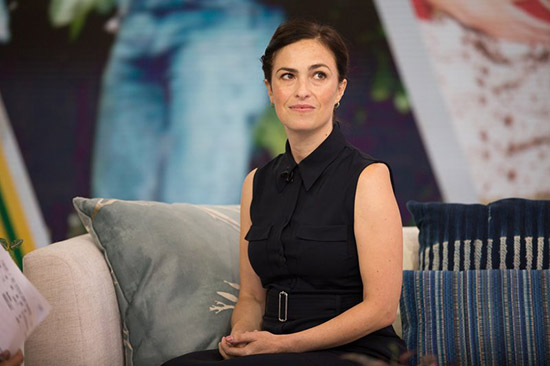
|
看过乔布斯传记的人都知道,乔布斯的人格是很复杂的,他虽然功成名就,但性格乖僻残忍。在他女儿那本读来令人心碎的童年回忆录《小人物》(Small Fry)的最后几页,丽莎·布伦南·乔布斯直面了一个尚无答案的关键问题。她写道:“当人们谈及我父亲的残忍时,他们有时认为,残忍与天才是有关联的。”这种“残忍是残忍者的通行证”理论,与很多硅谷人的人生哲学不谋而合——要想成就伟大的事业,是不是必须要像乔布斯那样,当一个混蛋呢? 对于这个问题,布伦南·乔布斯的答案是:“或许正是残忍保护了他创造力的部分。因此,妄图通过变残忍以使自己接近天才,就像盲目模仿他说话的调子、走路的样子或者乔布斯的其他怪癖一样,是非常愚蠢的。” 在这本400多页的书中,描述乔布斯的商业经营的部分大概只有一页纸的篇幅。但这仍然是一本很有感染力的书。乔布斯的信徒们热衷于谈论他的天才和魅力,以及他总能做正确的事的能力。然而他们往往会忽略甚至故意无视乔布斯的阴暗面。布伦南是乔布斯的第一个孩子,但他一直否认布伦南是自己的孩子,直至最后对簿公堂才被迫接受现实。即便如此,布伦南仍能看到乔布斯的优点。她用优美的笔触,娓娓讲述了从她小时候直到乔布斯去世那天父女两人的爱恨纠葛。这段经历绝对是乔布斯的人生污点,任何一个为人父母、兄弟姐妹和子女者读了这本书,都不可能不同情其作者,痛斥故事所围绕的这个人物。 如果你读这本书的目的,是成为一名更好的经理人,或者想通过本书了解未来的趋势或苹果的秘史,那这本书并不适合你。而如果你想深入了解在这个男人的公司改变世界的同时,他是如何摧毁了一个弱小女孩的心灵,那么我强烈推荐你阅读这本书。 说到苹果,《华尔街日报》(The Wall Street Journal)上周末发表了一篇很有见地的文章,解释了如何从苹果上周的地理扩张中看出它的服务、手机和原创内容战略的新动向。“在苹果进军视频编辑领域的过程中,卡尔弗城为苹果在好莱坞提供了一个阵地;西雅图是一个机器学心中心,苹果可以在这里开发算法,对流媒体播放列表进行定制,并对Siri进行改进。圣迭戈和奥斯汀能够为苹果提供半导体工程师,他们可以加大定制芯片的研制力度,帮助苹果从iPhones、iPads和Mac等产品中压榨出更多的钱。” 此外,我还推荐大家读一读《华尔街日报》的一篇文章,它深入解析了通用电气公司何以在杰夫·伊梅尔特的领导下走向末路。《财富》杂志的专栏作家杰夫·科尔文最近也在文章中提到了激进投资人纳尔逊·佩尔茨在投资通用电气股票后的惨状。此文会使读者了解到关于这一话题的更多信息。金融记者、《财富》杂志自由撰稿人威廉·科汉最近还签了一份合同,即将撰写一本讲述通用电气公司兴衰史的书。(财富中文网) 译者:朴成奎 |
In the final pages of her heartbreaking memoir about her childhood, Small Fry, Lisa Brennan-Jobs addresses head on one of the central unanswered questions about her accomplished, famous and appallingly cruel father, Steve Jobs. “When people speak and write about my father’s meanness, they sometimes assume that meanness is linked to genius,” she writes. It’s a variation of the “asshole” hypothesis so many in Silicon Valley posit all the time: Is it necessary to be an asshole, like Steve Jobs was, to achieve greatness? Brennan-Jobs, who devotes perhaps one page out of nearly 400 to her father’s business affairs, has come to her own conclusion. “Maybe the meanness protected the part that created—so that acting mean to approximate genius is as foolish as trying to be successful by copying his lisp or his walk” or other Jobsian mannerisms. This is a haunting book. Apologists for Steve Jobs tend to talk about his charisma, his great charm, his uncanny ability to be right. They tend to dismiss or change the subject from his dark side. His eldest child, whose paternity he denied before being compelled in court to accept, sees the good in him, too. But her patient, beautifully written account of how he treated her from a young age almost to the day he died is blot on his reputation. No parent or sibling or child can read this book and not come away empathizing with its author and reviling the character around whom her story revolves. If your goal in reading books is to be a better manager or spot future trends or to understand Apple’s secrets, this is the wrong book for you. If, on the other hand, you want to gain insight into the man whose company revolutionized industries even as he played the ogre to a defenseless child, I highly recommend it. Speaking of Apple, The Wall Street Journal had a good piece of insight over the weekend, explaining how Apple’s geographic expansion last week neatly informs its ongoing strategy of offering services, higher-priced phones, and original content. The paper wrote: “Culver City gives Apple a Hollywood home base as it pushes into video programming. Seattle is a machine-learning hub where it can develop algorithms that personalize streaming-music playlists and improve Siri. San Diego and Austin offer semiconductor engineers who can advance the customized-chip efforts that help Apple wring more money out of its iPhones, iPads, and Macs.” I also recommend The Journal’s tour de force explanation of GE’s demise under Jeff Immelt. The article nicely builds out the angle Fortune’s Geoff Colvin explored recently in his piece about the travails of activist investor Nelson Peltz in owning GE’s stock. The reading public will get even more on this subject. Financial journalist, and sometimes Fortune contributor, William Cohan, recently signed a deal to write a book on the rise and fall of GE. |






